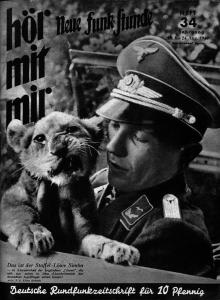I said I was going to write about “the good German” in this post. I’ll still be doing that but mostly I’d like to mull over an idea that has been roaming my mind for the last while.
Do the novels we read and the films we watch actually affect our ideas about a different nation or group of people? I decided a while ago that it would be impossible to study the effect of reading a particular novel or watching a particular film on the reader/observer’s ideas about the nation/people depicted.
But surely studying the depictions themselves and seeking out recurring themes and images is a far more worthwhile thing to do if you believe (or even know!) that the depictions influence those exposed to them.
Having read Khaled Hosseini’s The Kite Runner or F. Scott Fitzgerald’s The Great Gatsby, do we feel that we have been educated in the lives and behaviour of Afghanis or 1920s Americans? Do we feel we understand those groups of people better having read a fictional story?
I wrote last time about the figure of “the German we love to hate” – those brutal, cowardly, cold characters that populate so much 1950s British fiction.
There’s also “the good German” who appears perhaps surprisingly frequently. He or she is usually courageous, kind, heroic and attractive with a passion for justice. There’s Karl Landmann in Roast Pigeon, Franz von Werra in The One Who Got Away and Erika Angermann in Fräulein.

Franz von Werra, extra-ordinary German
But these novels certainly aren’t leading the reader to believe in a Germany full of lovely, kind-hearted people. Instead, the hero is very obviously presented as a positive anomaly within an often undistinguished mass of Germans around him or her, who do not have these qualities and often display very negative ones instead.
For isn’t that often the point of characters in novels – that they are anomalous in some way, not representative of the average German or Afghani or 1920s American? And it’s their anomalous nature that makes them interesting enough for a story to be constructed around them that thousands or even millions of people want to read.
We know that Amir and Gatsby aren’t representative of their time and place – they are abnormal or extra-ordinary people to whom abnormal or extra-ordinary things happen. The vicious Nazi Hansen or the justice-loving Karl Landmann are also anomalies – and Karl is overtly depicted as such.
The world these characters belong to isn’t full of Amirs and Gatsbys, Hansens and Karls – and as readers, we know this. We know (as would 1950s British readers) that not all Germans are like Hansen, but nor are they like Karl. (And it would be insulting the intelligence of popular fiction readers to think otherwise.) These are individual figures, created for their special ability to arouse a reader’s hatred, excitement or amusement.
Is all lost for me, then? If readers are fully aware (at least consciously) that the characters they are following offer no revelations about the characteristics of the nation or group to which they belong, what’s the point in studying those characters in connection with the mutual perceptions of two post-war nations?
I don’t think that all is lost. In my next post, I’ll write about the settings of novels – which I believe may have the influence that individual, extra-ordinary characters may lack.
